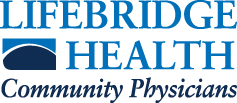Many of our patients have asked us about recent studies that have come out in the medical journals and have been summarized in the lay concerned as to whether aspirin is safe and whether they should be taking it. This new information is not only confusing to patients but even for doctors. This New York Times Editorial also may help. Click here for the Aspirin Article
In short, any patient who has had a heart attack, stroke, stent, or bypass, should remain on aspirin.
It may help to understand the 2 terms that clarify the issue. The the two terms are : Primary prevention and secondary prevention.
Primary prevention simply means a strategy of preventing a specific problem if one does not already have a problem but are at risk for a problem… An example is if someone is worried that they are at risk of having a heart attack because their father had a heart problem, primary prevention would mean what could that person do to prevent their own heart problem.
Secondary prevention refers to people who already have a condition and want to prevent a recurrence. Someone who has a stent or who has had a heart attack wants to prevent further problems. That is called secondary prevention.
The question of secondary prevention regarding aspirin has already been solved. If someone has a history of coronary heart disease (had a stent, heart attack, angina), peripheral vascular disease, or prior stroke, they should be on aspirin unless they are allergic to it.
These new studies address the issue of primary prevention: that is can you prevent heart disease if you don’t already have it by taking aspirin. The answer seems to be NO, even if you have diabetes or a family history of heart disease. If you do not have a personal history of heart disease, stroke or peripheral artery disease you should probably not be on aspirin. Even though we are talking about baby aspirin, this medicine is not harmless and these studies show that you are much more likely to bleed than get any benefit from the therapy.
Though you should talk to your doctor, in summary: if you have a vascular problem (history of stroke, heart attack, stent, or peripheral vascular disease), stay on aspirin; but if you have none of these conditions, you no longer need to be on aspirin.
Is there anything you can do to prevent heart disease if aspirin is no longer recommended? The answer is YES.
You can exercise; If you smoke, stop. If your blood pressure is high, control it. If you have diabetes, control your sugar. If you have very high cholesterol consider a statin.
PLEASE DISCUSS THESE ISSUES WITH YOUR DOCTOR OR WITH ONE OF US, and we hope this new information helps you understand this very important issue.

